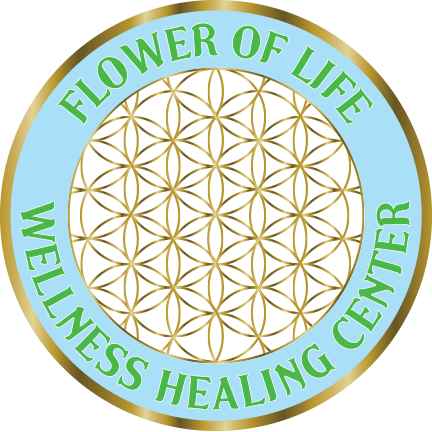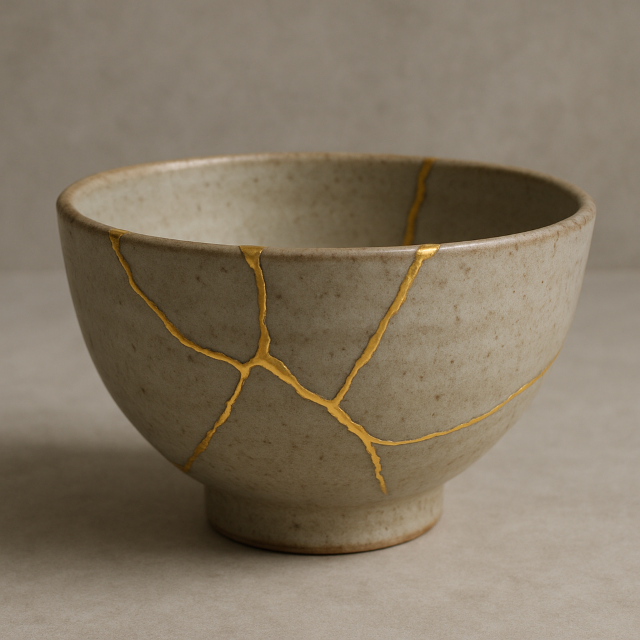Posted May 7, 2024 0
1.Hard to tell.
2.Then there is more that I can appreciate about each broken piece .
3.Impossible since there is someone to blame for that.
4. ……………………………………………………………………………………………….
Adulthood, for many, becomes a quiet act of mending—a process of closing the gaps left open by those who came before us. As we navigate parenting, relationships, and self-understanding, we often find ourselves tending to emotional wounds left untended in childhood. We learn to provide the very things we never received. In this healing, we are much like a cracked bowl, once whole, then dropped. But rather than discarding it, we decide to repair it with intention, with gold—not to hide the fractures but to honor them. This process, called kintsugi (specific to the Japanese art of repairing pottery with gold lacquer), reveals a deeper truth: that our brokenness can become the most beautiful part of us if we dare to restore it with love.
Each crack in the bowl tells a story—one of impact, vulnerability, and survival. As children, we absorb experiences we cannot yet understand: the absence of affection, the silence where there should have been reassurance, the inconsistencies in care. These fractures, though invisible to others, live within us. But when we become parents or partners or simply self-aware adults, we can begin the slow, deliberate work of golden joinery. We name the cracks. We trace them with care. And each time we choose to do better—to speak gently when we were once yelled at, to hold space instead of judgment—we fill those fissures with gold. The bowl becomes stronger than it was when unbroken.
Part of this healing process, gluing with gold the broken pieces, deepens as we embrace forgiveness. Forgiveness is the gold itself: rare, precious, and transformative. To forgive our parents—not as a duty, but as a liberation—is to choose not to discard the bowl, but to make it whole in a new way. It means seeing their cracks too, and understanding that they passed to us only what they had. Their version of the bowl may have never been repaired. When we choose to mend, we do not erase the past, but we change the future. The bowl, once a vessel of damage, becomes a vessel of meaning. Our children drink from it, and taste not bitterness, but healing.
Every act of emotional repair—of choosing patience, empathy, or self-awareness—is a brushstroke of gold. The bowl becomes an evolving artwork, one that bears witness to the unseen labor of love. This is what it means to raise ourselves while raising our children. To give them a bowl not free of cracks, but rich with golden lines. It’s an inheritance of intentional healing, not perfection. And in giving it to them, we also give it back to ourselves. We begin to hold ourselves more gently, recognizing that the act of breaking is not the end of the story—it is the beginning of transformation. What if the gold you use to mend your cracks is the very thing your children will see as your deepest strength?.
In the energetic body, the heart chakra is the very kiln in which this bowl is remade. Situated at the center, it governs our ability to give and receive love. When balanced, it empowers us to mend with gold, to forgive, to open. But a blocked heart chakra mirrors the unrepaired bowl: it leaks, it cannot hold, it fears the very love it needs. The act of emotional mending, of forging golden seams from pain, is what clears the heart and allows energy to flow. As the bowl becomes whole through compassion, so do we. We hold more, love deeper, and no longer fear our brokenness.
The bowl is never what it was before the break—and that is its greatest truth. It carries its history, but wears it as beauty. We, too, carry our stories, but through conscious healing, we craft a new narrative. To repair ourselves without resentment, to offer our children a more resilient, radiant vessel, is to live a philosophy rooted in courage and compassion. The bowl is not less for having been broken; it is more. And so are we.

